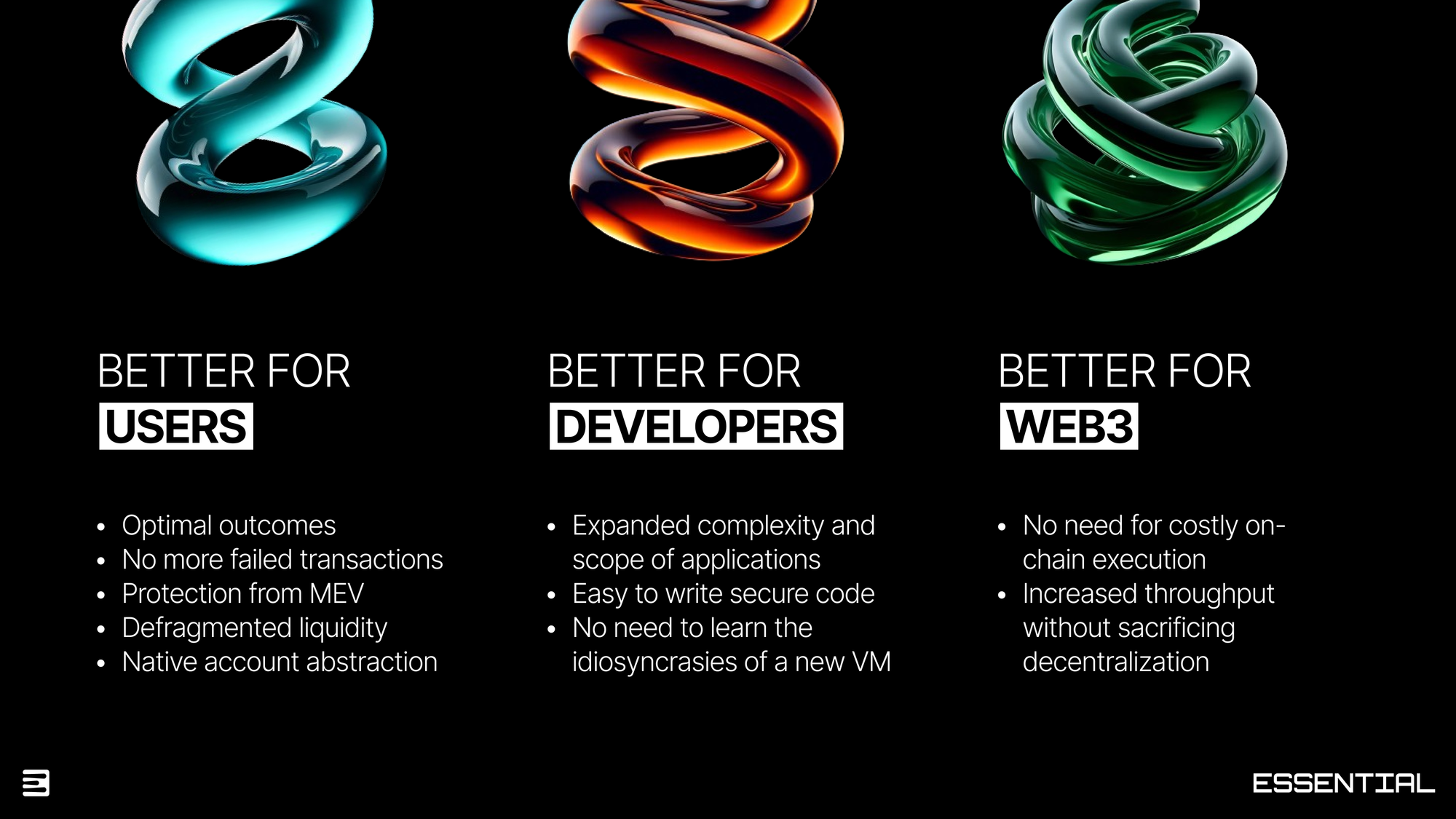Declarative Blockchain Advantages
Adopting a declarative blockchain design offers transformative benefits for users, developers, and the web3 ecosystem as a whole. Below, we explore the core advantages of declarative architectures and how they address the limitations of traditional imperative blockchains.

Advantages for Users
Declarative blockchains put users first by enabling a streamlined, outcome-oriented experience.
Optimal Outcomes
- Competitive Solver Network: Users benefit from a competitive network of solvers, each striving to maximize user satisfaction through optimal outcomes.
- Access to Entire On-Chain Solution Space: Users' intended outcomes are dynamically matched with the optimal solution path at the moment of inclusion, rather than being locked into a rigid sequence.
- Protection from MEV: Value extraction opportunities, like Miner Extractable Value (MEV), are minimized, ensuring that the benefits of transaction efficiency flow back to the user.
- Fair Sequencing: Transaction ordering and inclusion are based on user-defined outcomes, ensuring that sequencing is fair and aligns with users' best interests.
Enhanced User Experience
- No Failed Transactions: Declarative blockchains eliminate the possibility of failed transactions, leading to a smoother experience.
- Native Account Abstraction: Users can interact with the blockchain more flexibly, with accounts natively abstracted for simpler, more intuitive use.
- Flexible UI Interaction: Users can interact with the blockchain through any UI, without being tied to specific interfaces or platforms.
Advantages for Developers
Declarative blockchains empower developers to build more sophisticated applications without the constraints of traditional execution models.
Unbounded Complexity
- Scalable Complexity: With no on-chain execution, applications can be as complex as needed without driving up gas costs. This opens the door to richer, more sophisticated applications.
Simplified, Secure Development
- Focus on Logic, Not Algorithms: Developers only need to define application logic, without worrying about managing detailed algorithms or execution steps.
- Reduced Complexity and Risk: By eliminating the need for intricate VM-specific knowledge, developers can avoid many common security pitfalls, leading to safer, more reliable code.
Advantages for Web3
Declarative blockchains represent a leap forward for the scalability and decentralization of the web3 ecosystem.
Next-Gen Scalability
- Efficient Validation: With no on-chain execution, validating the blockchain becomes faster and more cost-effective, enabling larger block sizes and higher throughput.
- Affordable Scaling: The absence of in-protocol execution significantly reduces computational costs, making large-scale applications more feasible.
Built for Decentralization
- Decentralized by Design: Declarative blockchains deliver massive throughput without sacrificing decentralization, ensuring that the benefits of scalability are not achieved at the expense of network integrity.
- Future-Proof Infrastructure: The declarative model supports a decentralized future by making it easier to add, validate, and maintain blocks in a scalable manner.
Declarative blockchains offer a powerful alternative to traditional imperative models. By prioritizing user outcomes, developer ease, and decentralized scalability, they represent a new frontier in blockchain technology, bringing us closer to a seamless, user-centric web3 experience.